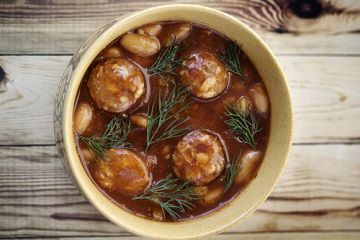Slow Down! Chewing Your Food Could Help Fight Infection
A new study published in the journal Immunity showed that taking the time to really chew food can help to stimulate the release of a specialized immune system cell, called a T helper 17 (Th17).

Looks delicious, right? Your dental patients might be tempted to devour a dish that looks this tasty, but a new study shows that chewing may help produce a specialized immune system cell in the body. With that in mind, it might be worth reminding them to chew thoroughly.
You’ve probably had a conversation with your kids about the importance of slowing down and actually chewing your food, but did you realize you might need to have this talk with your patients as well?
A new study published in the journal Immunity showed that taking the time to really chew food can help to stimulate the release of a specialized immune system cell, called a T helper 17 (Th17). Th17 cells are a part of our adaptive immune system. They recognize specific antigens, foreign substances that are potentially harmful, and help to activate an immune response. Th17 cells are also capable of recognizing “friendly” bacteria that can be beneficial to our overall health.
RELATED: The Latest Scientific Studies in Dentistry
· New Dental Implant That Slowly Releases Antimicrobials Fights Biofilms
· Alzheimer’s Drug Could Change How Dentists Treat Large Cavities
· Archeologists Reveal How Ancient Man Cared for His Teeth
In the study, researchers noted the mechanical force achieved through the process of mastication lead to physiological abrasion and damage to oral tissues. They hypothesized that this physiological damage was actually the catalyst for Th17 production, and set out to test their theory on mice. Initially, test mice were given soft-textured foods which required less chewing. The mice were fed this diet until they reached 24 weeks of age — at that time, the number of Th17 cells in each rodent’s mouth was measured.
The team found there had been a significant reduction in the amount of Th17 cells present. The research team speculated this was a result of a reduction in mastication-induced physiological damage to the oral tissues. To test this theory, the team rubbed each rodent’s oral cavity with a cotton-tipped applicator to increase the amount of physiological damage. A resulting increase in Th17 cell production was noted.
However, the team also noted harmful effects of increased physiological damage leading to increased Th17 production. By comparing test results from mice to were fed a hard-textured food diet and the results from the soft-textured food fed mice, they showed that long-term exposure to damage caused by mastication might exacerbate the effects of periodontitis. In fact, the mice that were fed a hard-textured food diet showed increased periodontal bone loss.
The researchers hope the findings could lead to new ways to fight a variety of illnesses. Lead investigator Dr. Joanne Konkel said, “The immune system performs a remarkable balancing act at barrier sites such as the skin, mouth and gut by fighting off harmful pathogens while tolerating the presence of normal friendly bacteria. Our research shows that, unlike at other barriers, the mouth has a different way of stimulating Th17 cells: not by bacteria but by mastication. Therefore, mastication can induce a protective immune response in our gums."